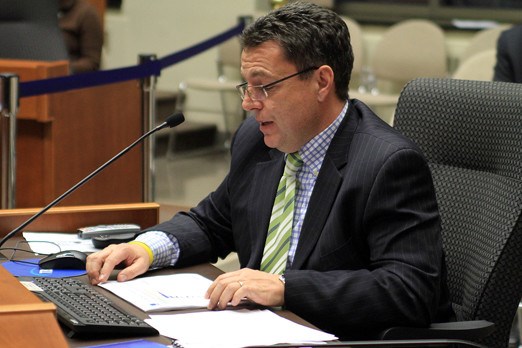Residents are extremely happy with life in Thunder Bay.
According to the citizen satisfaction survey, 87 per cent of respondents say the quality of life in the city is good or very good, up slightly from two years ago, the last time the study was conducted. Eighty-six per cent are satisfied with the level of service provided by the city.
Current River Coun. Andrew Foulds said he was actually a little surprised at how high the city rated in those categories.
“I think recently in the last six months you’ve heard some negativity. I think you’ve heard some negativity in the media and certainly people’s comments. This ... balances off some of that negativity. I was very pleased at the level of satisfaction,” Foulds said. “I was also really interested in those things that are really important to people and how those have trended over time.”
Foulds said the trends are just as valuable as the actual numbers.
“If something is trending down, that means we’re making improvements. If things are trending up, then maybe we need to look at those more seriously,” he said, adding it’s also a valuable way for the public to give council a report card.
It’s also a good measuring stick for council, he added.
“This is a very scientific way of measuring those things that are important and their satisfaction,” Foulds said. “I, certainly as a city councillor, use it to evaluate decisions that I’m going to make. And it’s obviously a tool we can use for our strategic plan to see where we’re going the next 20 years.”
The numbers show Thunder Bay fares pretty well compared to other Canadian cities, said study author Graham Loughton, vice-president of Ipsos Reid Public Affairs, the Toronto polling company that conducted the $25,000 survey.
“I would say that’s above average,” Loughton said after presenting the results to council on Monday night.
“You’d be hard-pressed to think you could go a whole lot higher than 87 per cent. You might be able to go to 92 or 93. But in general there’s always somebody who’s going to disagree. I would say the typical numbers are probably lower than this. Again, there’s no absolute comparison, but I would say in general, numbers like these would be a couple of points lower (in other cities).”
The main sticking point for the 500 people surveyed appears to be road maintenance, with 31 per cent listing it as the service in most need of improvement, followed 12 points back by policing, which saw a jump of seven percentage point over 2009.
Neebing Coun. Linda Rydholm expressed disappointment that roads and infrastructure spending priorities weren’t specifically asked about, calling it surprising and a departure from previous surveys. Given there's a $15 million annual infrastructure deficit, she thought it merited at least a few questions to the public.
“It’s good to compare from year to year to year to see if people are thinking any differently. So I was surprised that that question wasn’t on the survey this year. However, it may work out better that we do a more specific survey in the future saying these are the dollars we have, what would be your preference – a multiplex, expansion of the waterfront to Phase 2 or 3, fix the roads, new waterlines or trails?” she said, adding she would have cut other questions from the survey to get the answers she wanted.
“All these different ideas need dollars. As a city councillor voting on the budget every year, I always do look at those surveys to see what the people have as their priority.”
Another slight surprise came on the crime front.
While 28 per cent of the population surveyed reported being a victim of crime in the 12 months prior to the survey, this is actually below the national average of one-in-three said Crime Prevention Council co-ordinator Amy Siciliano.
The doom-and-gloom that dominated the municipal election landscape didn’t show up in the poll, which paints an entirely different picture of the community’s view on safety. Seventy-four per cent of respondents feel it’s safe for their children to play outside in their neighbourhood, 68 per cent feel Thunder Bay is a relatively safe city and 59 per cent feel safe walking alone after dark in their neighbourhood.
“I think (the numbers) tell a different story, to a certain extent. They tell us that people generally feel safe in Thunder Bay,” she said.
Other highlights suggest 73 per cent of residents feel they get good value for their tax dollar, the percentage of people worried about the economy has dropped to 33 per cent from 56 per cent since 2009, and half of city residents favour increasing taxes to maintain services, while 37 per cent favour service cuts.
The survey was based on phone responses of 500 residents and is considered accurate plus or minus 4.4 per cent, 19 times out of 20.
Sign in or register
- Messages
- Post a Listing
- Your Listings
- Your Profile
- Your Subscriptions
- Your Likes
- Your Business
- Support Local News
- Payment History
Registered Users
Already have an account?
New Users
Create a free account.
